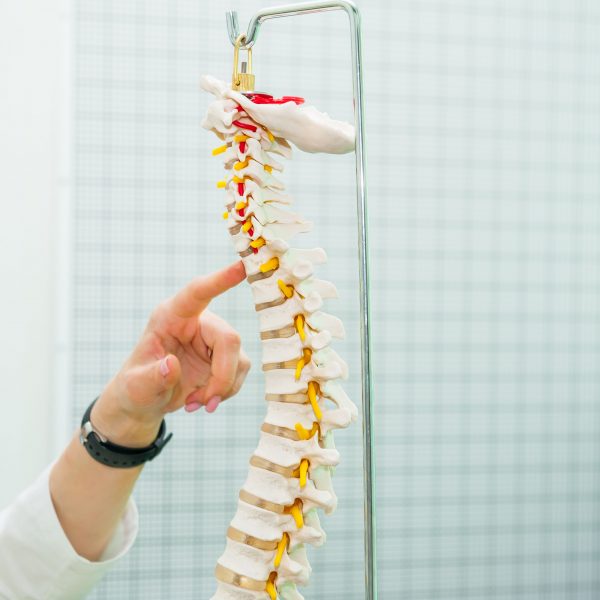A vacation is usually something that most people look forward to. For some, especially those with chronic illnesses, it can be a daunting experience. But it doesn’t have to be that way! With a little planning, flexibility, and extra care, you’ll have better, more amazing experiences on your trip and find yourself looking forward to your next one.
Talk to Your Doctor
Before setting your eyes on your dream destination, sit down with your doctor and discuss your trip. Let your doctor know about where you plan to go and what activities you plan to do while you’re there, and listen for any of their concerns and suggestions on how you can make the trip safer and more comfortable. For example, if you have scoliosis or experience back pains, a scoliosis specialist might suggest that you bring cushions that help support your back. On the other hand, if you have endometriosis, they might suggest that you bring extra medication and a heating pad to soothe the pain.
Depending on your condition, you might be taking a few health risks if you decided to travel, which is why it’s best to get the “all-clear” from your doctor first. They can also provide you with a doctor’s note or medical letter that can help you have a more comfortable travel experience.
Study Your Destination
If you’ve decided where you want to go, try doing some research on your destination from a health standpoint. Consider the weather, temperature, altitude, and other factors that can trigger any pain, discomfort, or even compromise your health during the trip. Getting familiar with your destination’s climate, weather patterns, and geography will prepare you for everything you might need to bring on your trip. You don’t want to go unprepared.
Consider What Routes You’ll Take
Whether you’re travelling by air, land, or sea, it’s important to know what route you’ll be taking way before you leave. This is a good way to help you figure out where and when you can stop for needed food and bathroom breaks. If your condition requires you to be on a certain diet, look up some places on the way to your destination that offers the kind of food you need.
If possible, try looking into any hotels you can stop by on the way, as the bathrooms in hotel lobbies are likely to follow regulations under the Americans with Disabilities Act, making it more accessible for people with disabilities. The same goes for any routes you take once you arrive at your destination. Knowing the facilities that you can stop at and make use of while you’re on the road helps make your travel experience a more comfortable one.
Call Ahead
Before you make that hotel booking, call the hotel and speak to a staff member (not the service line) regarding your needs. Doing this will help you make sure that the hotel can meet those needs and will let you know of any potential difficulties you might experience when you arrive.
This goes for travel procedures too. Let the airline know about any disabilities and mobility limitations in advance, so they can provide you with the proper assistance, especially if you’re going to need help getting on and off the plane. If you have a service or therapy animal, you’ll have to make additional preparations and prepare yourself for extra fees. It’s best to call your preferred airline and ask about their guidelines and fees for service animals, especially now, as airlines are only considering dogs as service animals for the time being.

Pack Wisely
It’s important to pack smart during any trip, meaning that you should pack enough of your medication, vitamins, first-aid materials to last you at least a few more days after your trip. Make sure to put these in your carry-on luggage if bad luck is on your side and your luggage gets lost. You’ll also need to pack some documents to prove your condition and need for your medication like your original prescriptions, health card, etc.
Once you’re done with all your health-related items, it’s time to move on to your other essentials: clothes, equipment, extension cords, and everything else you might need for your trip. The best way to pack is to do so for the worst-case scenario. That way, you’ll be prepared no matter what may happen during your trip.
Get Travel Insurance
With travel comes unexpected events, and chronic conditions can be unpredictable at times. There are many types of travel insurance plans that can cater to your condition and your wallet. Make sure that your medical insurance plan covers your whole trip, especially when you’re travelling abroad. Call your insurance company or go insurance shopping in advance to find out about their medical insurance offers and give yourself time to review the different plans. This will give you peace of mind while travelling and won’t cost you an arm and a leg if anything happens during your trip.
Know Your Limits
You might want to make the most out of your trip, but it’s important to consider your safety and well-being first. Don’t push yourself too hard; listen to your body and take ample time to rest in between your activities. Before heading out, bring a bottle of water and a snack that you can have while on the go. If you’re travelling in the summer, try not to stay under the sun for too long and keep hydrated. If you’re travelling in the winter, make sure you’re wearing the proper attire to keep yourself warm.
All these steps can seem overwhelming. Just remember to take things slow, plan out your trip carefully, and keep your health and safety in mind. No one knows your body better than yourself, so don’t let the stress of your condition and the travel process intimidate you.






